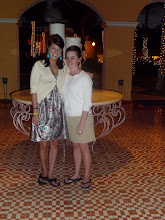As a freshman in college, I always receive the common question from adults, neighbors, and relatives, which is "what is your major? what are you studying?" Coming to Creighton, I was on the pre-med track with a possible biology major. After being forced to take a communication class, I started considering the idea of a communication major. While thinking about the pros and cons of both a biology and/or communication major, I could not even comprehend how I ended up with two completely opposite majors. I felt like I was reaching to the far right and to the far left of the intended major spectrum. While learning about theory and the research communication majors conduct, I discovered these two majors are not entirely that different.
A scientist starts by forming a hypothesis, formulating an experiment, running the experiment, and observing specific data. At the end of his or her experiment, he or she should be able to interpret his or her findings and speculate a common theory. After this theory is formulated, he or she should be able to test it over again to discover the same results; however, this does not make the theory a proven fact. Similar to communication studies, a theory can never be proven as a fact, but it can be disregarded or discredited.
In communication research, the researcher develops an extremely similar plan or experiment. Once a hypothesis is formed, he or she can create a way to observe or test his or her hypothesis, carry out the research, and draw conclusions. It is important for these findings to be either reliable or valid. If the findings can be repeated through the same experiment, then the theory is reliable. If the experiment measure what the theory claims to measure, then the theory is valid.
Learning about communication theories, I discovered my initial thought of a communication major and biology minor would not be such a bad idea. I would be given the opportunity to discover new aspects of each subject through research and experiments. It is exciting to realize how communication is truly a science and how I can apply both communication as a science and science as a communication to my life.

No comments:
Post a Comment